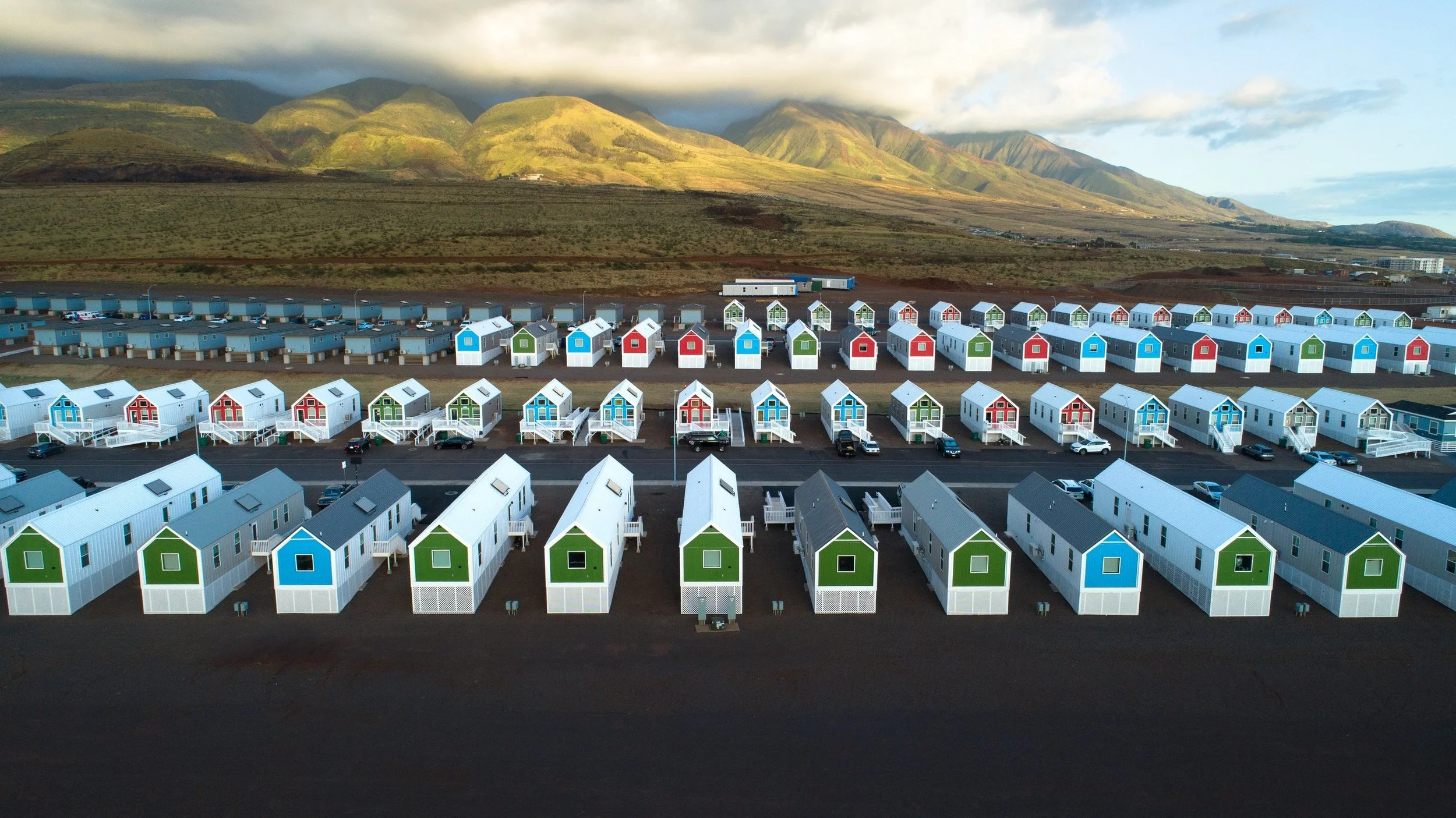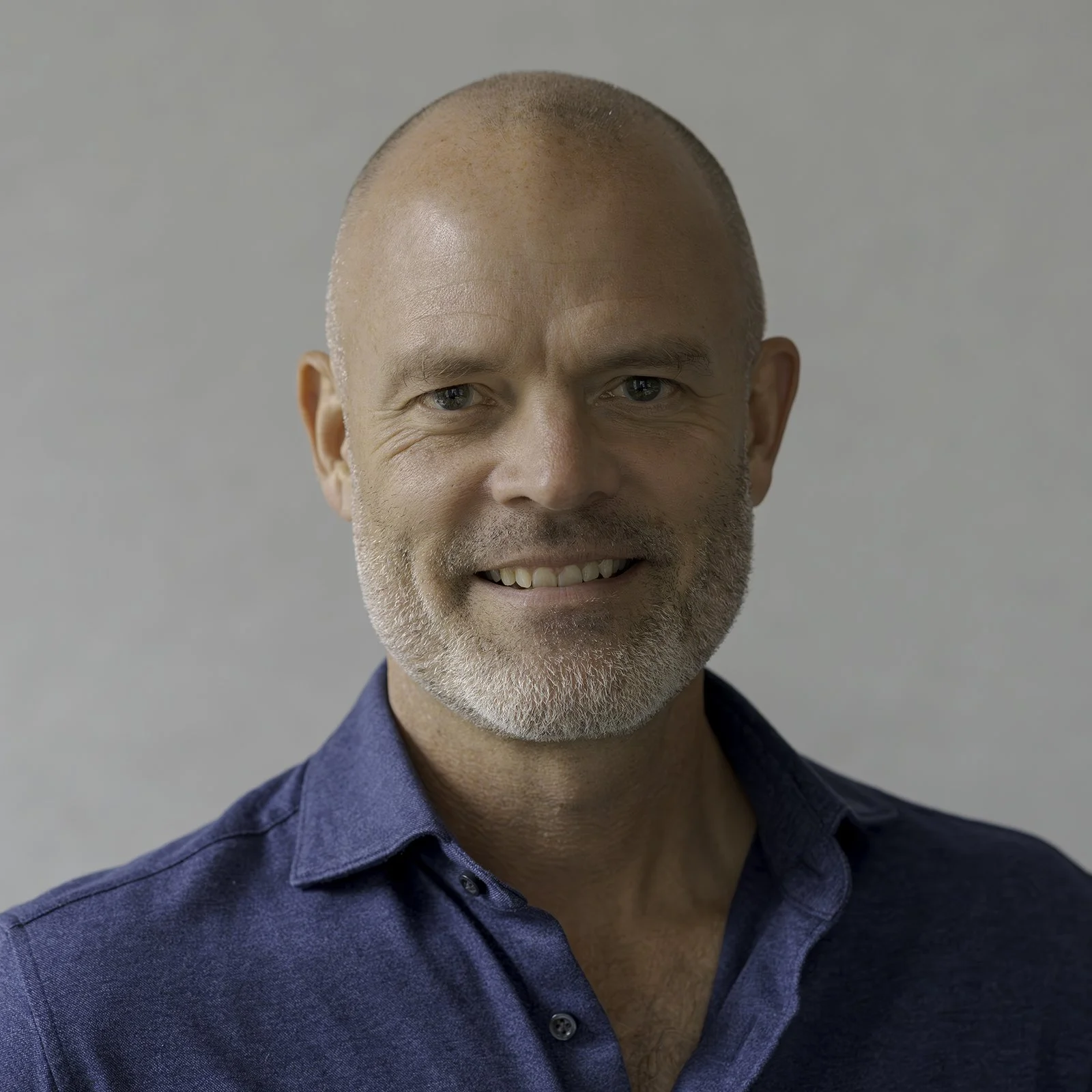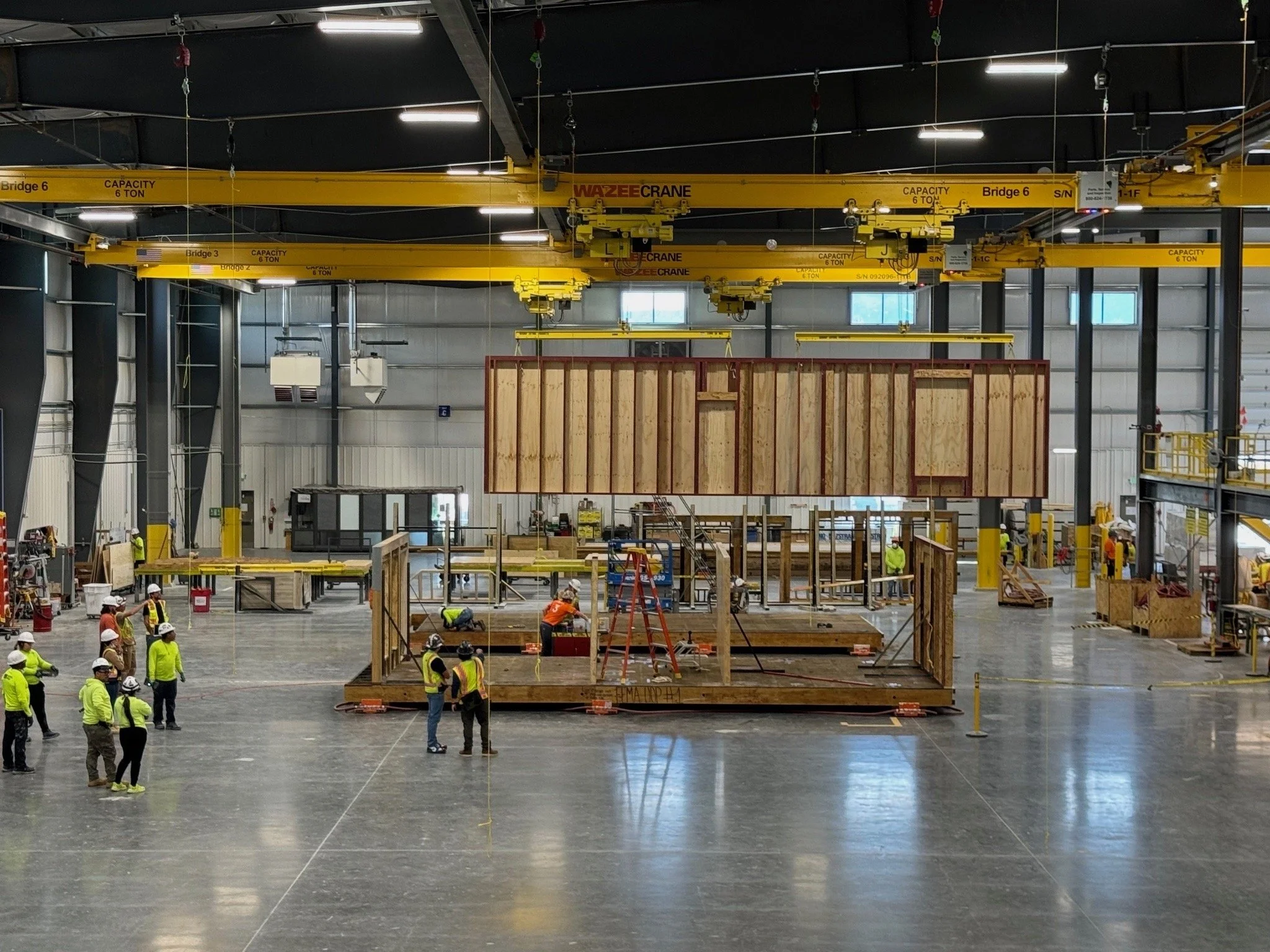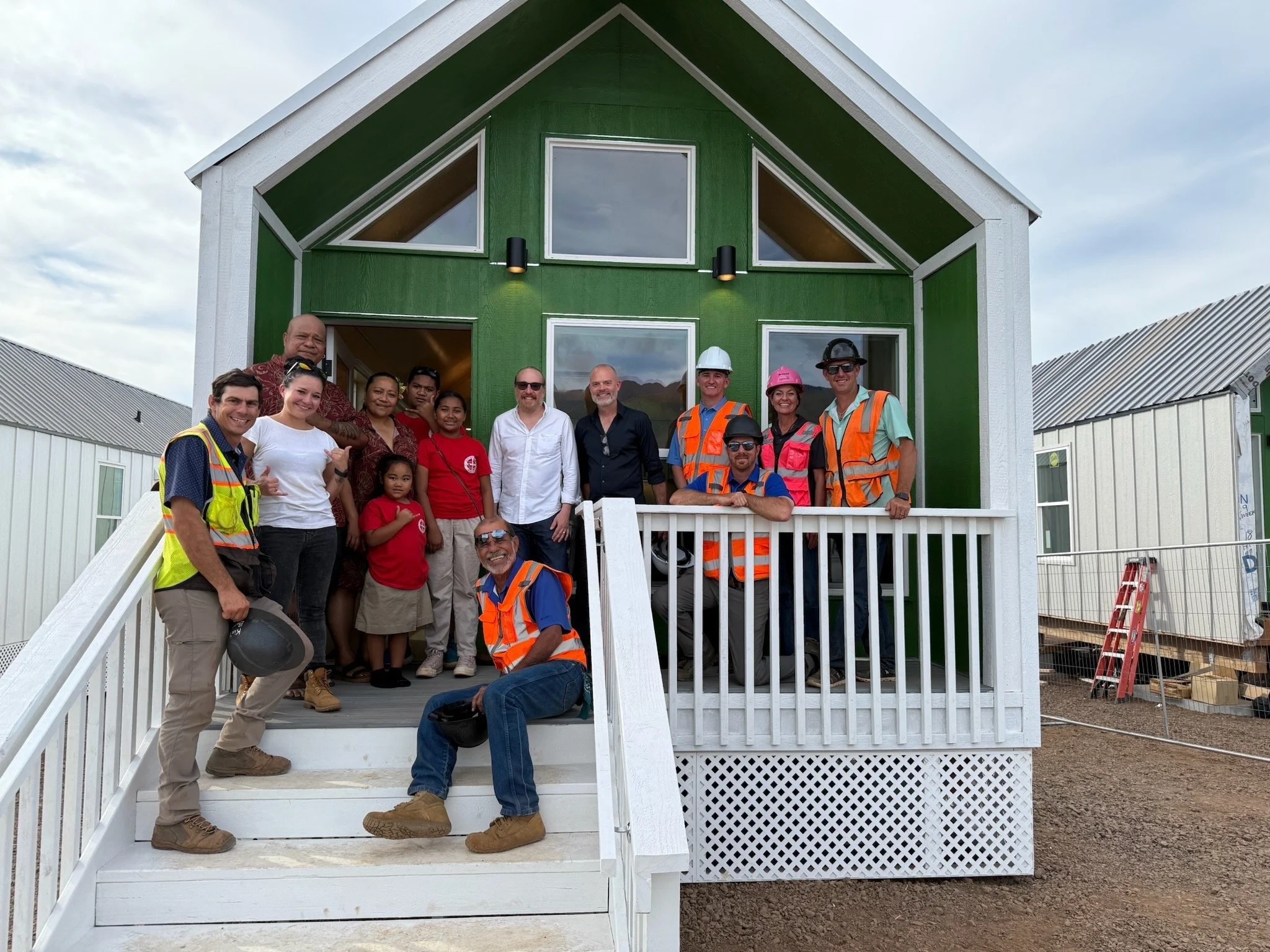Jordan Rogove and Wayne Norbeck of Liv-Connected | A New Take on Disaster Housing in Hawaiʻi (Part 1)
Photo Credit: Liv-Connected
When Hawaiʻi Said No to FEMA Trailers
When the Lahaina wildfires devastated Maui in 2023, Hawaiʻi's governor did something unprecedented: he rejected FEMA trailers. The reason was simple一those trailers were designed to last three seasons but routinely became permanent housing for 10-plus years, bringing mold, formaldehyde, and health problems with them. Hawaiʻi wanted something better.
Jordan Rogove and Wayne Norbeck, co-founders of DXA Studio and Liv-Connected, manufactured and delivered 109 homes to the Maui community in under two months. Their solution challenged conventional wisdom about disaster housing, demonstrating that speed and dignity can coexist.
Their work on the Lahaina project reveals the tensions in disaster response: federal bureaucracy versus innovation, volumetric versus flat-pack construction, and how to maintain design integrity under tight deadlines.
This conversation also traces their journey from Virginia Tech classmates to established architects running a New York City practice. Along the way, they discovered that adaptive reuse and architecture-as-activism weren't just design philosophies, but rather catalysts for creating Liv-Connected, their modular housing initiative focused on integrating health technology into factory-built homes.
Listen on Spotify | Listen on Apple Podcasts | Watch on YouTube
“Forget about performance and the longevity of the solution一providing a more dignified disaster housing solution allows recovery to happen faster and produces better health outcomes.”
Courtesy of Liv-Connected
About Jordan Rogove
Jordan Rogove is an architect who approaches his work with a belief in the power of architecture to positively influence the lives of all who engage it. He co-founded DXA Studio with his partner Wayne Norbeck in 2011.
Over the course of his more than 26 year career, Jordan has completed projects that span numerous typologies. The common thread in all of his work is the ability to resolve the tension between opposing forces into elegant responses: art and science, design innovation and technical excellence, and contemporary considerations and historical context.
His work includes some of the most sought after residential buildings in New York City including The Maverick, 49 Greene and 280 St Marks, the renovation and restoration of Ralph Walker’s landmark 100 Barclay Street and the Carbide & Carbon Building in Chicago; contemporary, award winning new buildings in landmark districts, including 10 W 17 Street, Willem de Kooning's studio building at 831 Broadway, 14 White Street and the converted Mt. Pleasant Romanesque Church at 140 W 81st Street.
A number of socially minded and humanitarian projects round out his broad spectrum of work, including the development of an orphanage in Zambia, a health-focused community in St. Marc, Haiti, and collaborating with the Clinton Health Access Initiative (CHAI) to develop architectural solutions toward the eradication of malaria in Namibia. Jordan is also a founder and COO of LiV Connected, a company he established with Wayne Norbeck to provide thoughtful, well-designed modular houses with the intent of making home ownership possible for the countless Americans for whom it is currently out of reach and for rapid deployment as emergency disaster relief housing.
Prior to establishing DXA studio, Jordan worked with renowned theatrical set designer Tom McPhillips, Chicago-based Lucien Lagrange Architects, and Morris Adjmi Architects in New York City. Jordan received his Bachelor of Architecture degree from Virginia Tech in 1998, where he is currently an Affiliate Professor of Practice. He lives in Brooklyn with his wife, Laura, and three children, Julian, Jada, and Sedi, and their puppy, Gnocchi.
Courtesy of Liv-Connected
About Wayne Norbeck
Wayne Norbeck co-founded DXA Studio with his partner Jordan Rogove in 2011 and joined Liv-Connected as a partner in 2019. With equal emphasis on design innovation and technical excellence, Wayne has overseen projects from the scale of furniture design up to urban-scale planning. Wayne’s work is linked by an approach that prioritizes architecture’s ability to resolve the site’s complexities with distinctive design solutions, to provide meaningful engagement with public spaces and landscapes, and to contribute a framework for socially responsible initiatives.
Wayne’s projects have included Maison 78; The Hendrix House; the Rowan Astoria; the Labs at 121 a new life-sciences building in Harlem; The Maverick, a dynamic new residential building in Chelsea; the design of the competition winning Midtown Viaduct, a pedestrian bridge and civic space that creates connections in Midtown; a 170-room hotel in TriBeCa; a passive house in Williamsburg, Brooklyn; and numerous multi-family residential buildings throughout New York City.
Wayne’s work also includes several humanitarian projects, including a non-profit community development in Zambia and an initiative to fight malaria through housing improvements along the northern border of Namibia. Wayne is also the Chief Operations Officer at LiV Connected, a company he established with Jordon Rogove to provide thoughtful, well-designed modular solutions for rapid deployment and disaster relief housing.
Prior to founding DXA studio, Wayne worked with Ziger/Snead Architects, TEN-Arquitectos and Gluckman Mayner Architects. Wayne is an Affiliate Professor of Practice at Virginia Tech. He has taught at Pratt Institute and has served as a visiting critic at numerous schools, including the University of Pennsylvania and the Parsons School of Design/ The New School. He received his Bachelor of Architecture from Virginia Tech, and his Master of Architecture from the University of Pennsylvania.
Photo Credit: Liv-Connected
Photo Credit: Liv-Connected
Episode Timestamps
(02:17) Meeting at Virginia Tech and collaborating on design competitions post-grad
(10:24) The Haiti competition approach: team building and community engagement
(16:04) The inspiration behind integrating health technology into modular housing
(18:46) Getting FEMA's attention through the Texas General Land Office RFP
(24:09) Why Hawaiʻi rejected FEMA trailers and sought out permanent housing solutions
(26:39) Design trade-offs for manufacturing at scale
(29:56) Navigating FEMA's seven-layer decision-making structure
Photo Credit: Liv-Connected
About your host:
Atif Qadir is a licensed architect and entrepreneur, interested in solving big problems through innovation and technology. He has founded two proptech companies and a real estate development firm, building products ranging from software to workforce housing.
His work has been covered by Technology Review, The Real Deal, Commercial Observer, and Propmodo. He’s also a frequent speaker on the future of buildings and cities on popular industry podcasts and at conferences, including this past year at the Commercial Observer National DEI Conference, Yale AREA Conference, Columbia Real Estate Symposium, Open Data Week NYC and Austin Design Week.
About Michael Graves
The world-famous design firm Michael Graves is also a founding sponsor of American Building. Its namesake, the iconoclastic designer Michael Graves, FAIA was a fierce advocate for people-centric design. His work defines a generation of American architecture and includes the Portland Building, the Humana Building and the Denver Public Library. The 1st season of American Building was filmed live at The Warehouse, his historic home in Princeton, New Jersey:
Rate, Review, & Subscribe on Apple Podcasts
Did you love this episode? Let us know by rating and review our show on Apple Podcasts. It’s easy - simply click this link, click on Listen on Apple Podcasts, scroll to the bottom of the page, and select “Write a Review”. Let us know what you liked best about the episode, and what others can expect when they listen to our show.
While you’re at it, consider subscribing to American Building. When you subscribe, you can guarantee you never miss a conversation with one our renowned designers, architects, and developers. Subscribe now!





